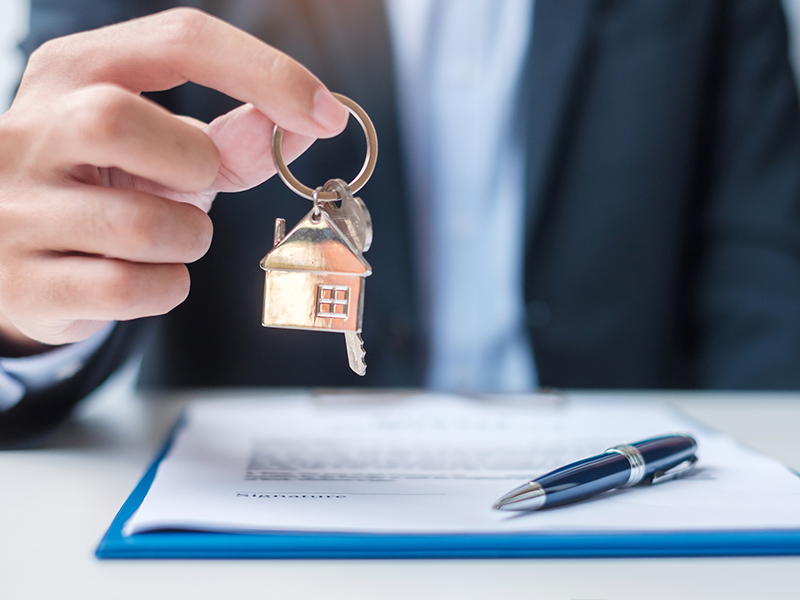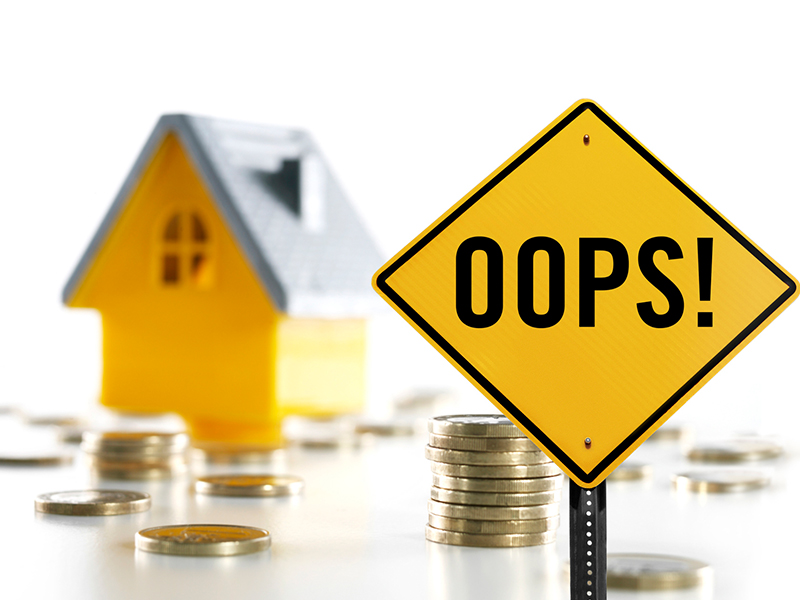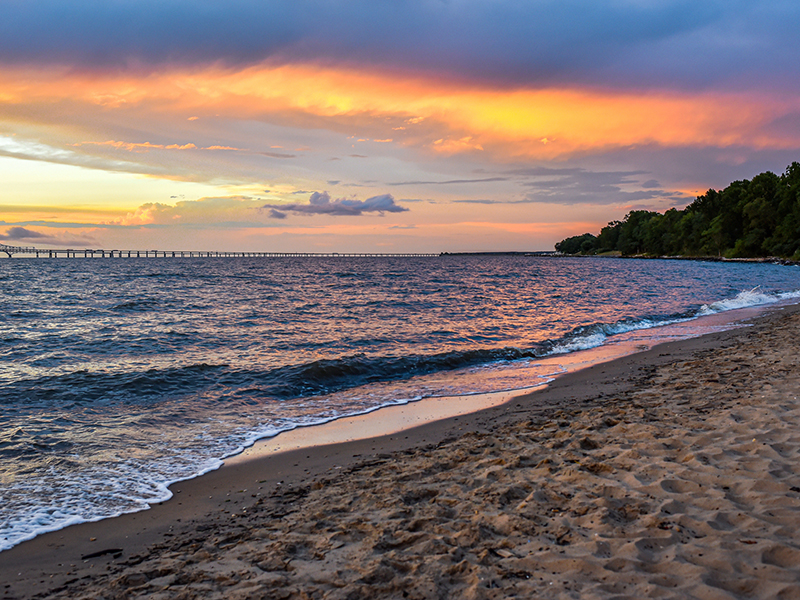In the heart of Coastal Virginia lies Chesapeake, a city that offers it all: urban living with a small-town charm, breathtaking surroundings, blissfully moderate climate, economic soundness, and a thriving community. An estimated 250,000 people live in Chesapeake, making it the second-largest city in the state based on population. This number is expected to grow in the coming years, especially since the city also ranked in 2023’s top 10 best places for first-time home buyers.
With all the qualities that make the city a prime residential area, Chesapeake, VA real estate listings are definitely worth a deeper look for your first home.
Table of Contents
CHESAPEAKE, VA REAL ESTATE MARKET: WHAT TO EXPECT

Market stats
The Chesapeake, VA real estate market is quite competitive but recent data shows a subtle transition to a balanced market where buyers and sellers are relatively on equal ground. Inventory is still quite tight but a recent surge in new construction in the city is promising a more varied selection of homes to choose from and a heftier housing stock in years to come. Homes for sale stayed in the market for a median of 39 days in October 2023 before getting snagged by buyers, with sellers getting returns at approximately their asking price.
The median price for homes sold in the area in October is $383,000, up by almost 7% from the previous month ($358,500) and by more than 2% year on year ($375,000). This is higher than the median sale price in nearby Norfolk ($309,000) and Virginia Beach ($365,000).
Property types
Single-family homes are the most common housing structures in the city, followed by condos and townhomes. A significant majority of homes have three to four bedrooms. Given the city’s relatively established status, more than half of the houses here were built between 1970 and 1999, followed by newer builds from the turn of the millennium onwards.
Styles and features
The city boasts an interesting mix of architectural styles, most of which are also popular across the state. All around you will see homes in the Colonial, Contemporary, Federal, Georgian, Ranch, and Queen Anne styles.
These predominantly classic styles are complemented by features like large yards, screened porches, patios, fully decked-out backyards, in-home offices, and increased storage solutions.
While the local market and its stock of lovely homes are attractive, especially to first-time home buyers, it still pays to know the best course of action to take to ensure a mistake- and stress-free experience as you find your next new home among houses for sale in Chesapeake, VA.
HOME-BUYING TIPS IN CHESAPEAKE, VA

A lot of the headaches (and heartaches) during your home-buying journey can be avoided by preparation. The work begins as soon as you decide to buy, which is long before you start browsing online for houses.
Read on for a comprehensive guide on the process, including tips and strategies that will help you secure the ideal real estate in Chesapeake, VA for your first home.
Step # 1: Pre-purchase preparation
UNDERSTAND THE COSTS
There are many costs involved in buying a house. Knowing about these costs is crucial so you can prepare for the financial requirements beforehand and avoid sudden adjustments in your budget. Below are some of them.
- Down payment. This is a portion of the purchase price that you pay in advance to secure the property. The specific amount depends on how much the house costs, as well as the mortgage you will get. Typical down payment costs in Virginia range from 3% to 3.5% of the sale price. There might be some cases, though, where a higher figure may be required depending on several factors like credit score and income. Then again, you can apply for financing programs for first-time home buyers that could bring down this fee to more attainable levels.
- Closing costs. These are fees paid before the keys exchange hands. The seller pays some of these costs but most fall on the buyer’s shoulders. Buyer closing costs include fees for loan application and origination, credit reports, title insurance and search, appraisal, home inspection, and transfer tax, among others. Closing costs in Virginia average 1.7% of the sale price.
- Reserves. To serve as a guarantee that buyers can make mortgage payments, some lenders require proof that they have enough reserve cash in their bank accounts.
- Mortgage payments. This is the amount left over after you have paid the down payment, split into monthly amounts. If you’re buying Chesapeake, VA real estate using a mortgage, this will likely be your biggest recurring expense. Thus, it’s wise to build your budget around it.
- Property taxes. These are paid out to the state and municipality where the home is located. In Chesapeake, VA, the real estate tax is $1.04 to $1.05 per $100 of 100% assessed value. The city assesses taxes every fiscal year and allows payments in quarterly installments. Remember that property taxes are variable so they can go up or down depending on the fair market value of homes in your preferred area.
- Insurance. Mortgage lenders require homeowner insurance for buyers, which provides coverage against unexpected events like natural disasters, vandalism, or theft. In Virginia, the average home insurance premium in November 2023 was $887 for policies with $250,000 dwelling coverage. Those with homes bought via government-backed mortgages that are located within the 100-year floodplain are required to get additional insurance against flooding.
- Other fees. Also included are moving costs and any homeowners’ association fees you have to pay. You must also factor in expenses for repairs once you move in, as well as recurring maintenance work that may be required.
CHECK YOUR CREDIT SCORE
The higher your credit score, the better the rates and terms you can get from mortgage lenders. So, before you look around for mortgage services, make sure that your credit reports tell a positive story. Take steps to raise your score and, if needed, straighten out any errors.
GET PRE-APPROVED
Nothing impresses a seller at the onset more than a pre-approved buyer. A pre-approval comes after an extensive analysis of your financial standing has been done by a lender. When the lender hands you a pre-approval letter, this is proof that you have enough borrowing power, given the soundness of your finances. Sellers usually favor buyers who have been pre-approved as these people are most likely to follow through with their plans to buy a home.
SET A BUDGET
Now that you have a better picture of the costs involved, as well as the amount you can borrow, you can set a realistic budget for this purchase. It will make your search more efficient as you can narrow down your options to homes within your price range. This also saves you from the potential disappointment of falling in love with a house only to find that it’s not in the cards, cost-wise.
Step # 2: Financing
LOOK AT MORTGAGE OPTIONS
You have all sorts of mortgage options to choose from, but the broader categories are government loans and conventional loans.
- Government loans. These are non-conventional loans backed by agencies like the Federal Housing Administration, the U.S. Department of Agriculture, or the Department of Veterans Affairs. Government loans have varying eligibility and down payment requirements which are typically lower to allow more people to qualify. For instance, you may qualify for a Virginia FHA loan with a credit score of only 580, if you can pay at least a 3.5% down payment.
- Conventional loans. These loans are handed out by private financial institutions like banks or credit unions. To qualify for a conventional loan in Virginia, you need a credit score of 620 and a debt-to-income ratio of 45% or below. The down payment for conventional loans is usually 20% of the total price of the home. But even if you pay lower than 20%, you can still get a conventional loan, provided that you also pay for private mortgage insurance. This is a fee paid on top of the monthly mortgage which serves as a safety net for the lender in case you default on the loan.
You should also consider mortgage terms which usually have 15 or 30-year options, as well as fixed or adjustable rates. Your finances and sources of funding will largely dictate which of these options will benefit you most.
Your mortgage will be part of your budget for the foreseeable future so it pays to study your options. The Consumer Financial Protection Bureau strongly recommends that home buyers compare loan offers from multiple providers to ensure that they are getting a fair deal.
FIND FIRST-TIME HOME BUYER ASSISTANCE PROGRAMS
The state of Virginia, as well as its counties and cities, offers a number of programs designed to help first-time home buyers with their investment. These may come in the form of down payment or closing costs assistance. You must meet certain requirements to qualify, which include income limits, years of residency in the new home, and mandatory completion of home buyer courses.
One example is the Call Chesapeake HOME Program. Under this program, eligible first-time home buyers can receive up to $25,000 in down payment and closing costs assistance. Apart from income limits based on household size, buyers are required to sign a promissory note and live in the property for at least five to ten years. If these and all other stipulations are met, the buyer does not have to repay the grant amount.
Step # 3: House hunting
PRIORITIZE YOUR REQUIREMENTS
What are the features that are non-negotiable to you? Are you looking at luxury homes for sale in Chesapeake, VA to use as your primary residence, a vacation getaway, or a real estate investment? Once you are clear about your goals for this transaction, it will be easier to know what to look for in the property you intend to buy.
Consider your future plans, as well. If, for example, you are thinking about expanding your family soon, then consider a house with more rooms and square footage.
Make sure to list down all these requirements and share your list with your real estate agent to make the home search faster and more efficient. Speaking of real estate agents…
HIRE A REAL ESTATE AGENT
Having an expert by your side in this endeavor is a must. In a competitive market like Chesapeake, VA, you want a real estate agent who can leverage their skills and network to help you secure your first home. Find someone with superior knowledge of market trends and the area itself, as well as years of experience in the industry, to guide you through the process.
DO SOME HOME-VIEWING
This, perhaps, is the most fun part of your journey – personally checking out the houses for sale in Chesapeake, VA that are among your options. Getting a feel for the homes and seeing every nook and cranny will arm you with indispensable information when it’s decision time. This is also your chance to survey the neighborhood to see if it’s compatible with your needs.
Step # 4: Closing the sale
MAKE AN OFFER
Once you’ve settled on a house, you can make an offer to the seller. Work with your real estate agent to come up with a competitive offer and discuss whether there are negotiating points to consider. You may also decide to put up an earnest money offer, which is a good-faith deposit to show your commitment to the sale. You’ll also want to work out your contingencies which, if not met, will allow you to hang on to your earnest money.
COMPLETE INSPECTIONS
A professional home inspection is mandatory, not only because mortgage lenders require it but also because it guarantees that the property is safe to live in. The typical home inspection covers electrical, heating, cooling, ventilation, and plumbing systems. Apart from that, you also want to complete inspections for radon gas, mold, insects, and other potential concerns that might be rampant in the area.
FINALIZE THE PAPERWORK
This is where you get all the home ownership and mortgage documents in order. During this stage, you will be working with more professionals to complete all the closing requirements. Before signing the closing paperwork, do a final walkthrough of the house to check that everything still lines up with the original agreement with the seller.
HOME-BUYING MISTAKES TO AVOID

As a first-time home buyer, it’s usually expected of you to feel your way through the process and fumble sometimes. However, there are some mistakes that should be avoided as these could cost you unnecessary delays and a huge amount of money down the line.
SKIPPING DUE DILIGENCE
Little things like keeping all your documents organized and getting pre-approval will remove a lot of stress from the experience. They can even shorten the time required to complete the process. Inspecting everything, from the house to the neighborhood, also allows you to make informed decisions in your home-buying endeavor.
EXCEEDING YOUR BUDGET
Getting that lovely home that’s way beyond your allotted budget may have dire consequences in the long run, especially when the monthly mortgage dues begin to stack up. So, don’t fall into the trap, no matter how much you love a particular house.
LEARN MORE ABOUT CHESAPEAKE, VA

Ready to buy a house in Chesapeake? Here’s a glimpse of the life that awaits you in the city.
Community highlights
EDUCATION
The city’s students are served by an excellent school district (Chesapeake Public Schools) composed of 48 schools. Committed to a comprehensive and balanced education for all, the district ensures that its academic, athletic, arts, and community programs empower students to build great futures for themselves.
HEALTH
Chesapeake has some of the top healthcare facilities in coastal Virginia. Chesapeake Regional Medical Center is known for being an innovation leader in the region and has several programs that are considered the best in the area. There is also Healthy Chesapeake, an organization of healthcare administrators and practitioners who work together with city leadership to introduce health and wellness initiatives for residents.
BUSINESS
With the city’s great location, accessibility, and educated workforce, it is regarded as a stable base for business investments. The landscape is quite diverse, with large multinational corporations and independent startups in varying industries choosing to make Chesapeake their home.
ATTRACTIONS
There is no shortage of things to do or places to go in Chesapeake, VA. Natural attractions, historical and cultural institutions, venues for indoor and outdoor sports and recreation, as well as top-notch dining and shopping choices abound in the city.
Neighborhoods
Chesapeake has a wide mix of urban, suburban, and rural neighborhoods. Some of the notable communities include Great Bridge and Hickory, both known for the high quality of life they provide residents. They are also considered family-friendly locales, primarily because of the great schools in their areas.
Greenbrier is another popular neighborhood as it stands right in the middle of the city’s main commercial district. It’s also just minutes away from Norfolk, Virginia Beach, Portsmouth, and Suffolk.
If you’re in the market for luxury homes for sale in Chesapeake, VA, Pleasant Grove is a good place to start. This neighborhood is known for huge farms, wildlife preservations, and spacious ranch-style houses built on large lots. It is far enough from Downtown that residents can experience a relatively quieter lifestyle but near enough to enjoy the conveniences of urban living.
BUY YOUR FIRST HOME IN CHESAPEAKE, VA
Our team at The Agency Coastal understands how buying a home, especially your first one, may seem like an insurmountable task. With our reputation for excellence and our unparalleled expertise on real estate in Chesapeake, VA and nearby areas, we will make this experience hassle-free and more enjoyable for you.
Contact us at 757-434-4171 or drop us an email here. Let’s start the search for your dream home now!

